Published Feb 19, 2020
How Janeway Helped Me Overcome Tragedy
Voyager's fearless captain was key to helping a fan through her darkest hours.
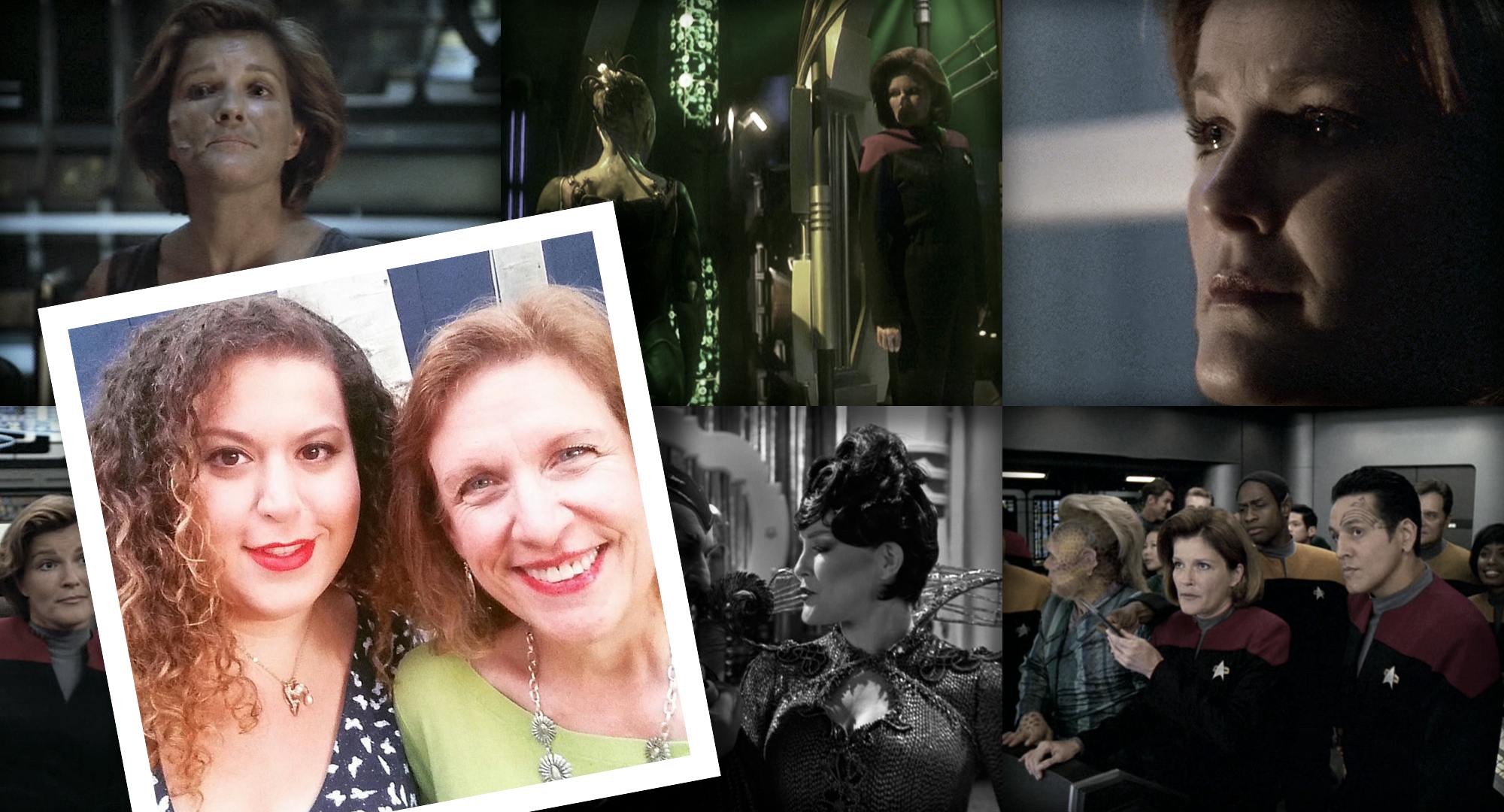
StarTrek.com
For many fans, Star Trek transcends its role as scripted entertainment and becomes an integral part of our lives. When her mother was diagnosed with cancer, Joanna Schnurman escaped into the Star Trek universe and found solace in its stories and characters. Captain Janeway proved to be a positive influence for Schnurman during that chaotic time, and she found many parallels between her own circumstances and U.S.S. Voyager’s unexpected journey to the Delta Quadrant.
Schnurman graciously took some time to speak to StarTrek.com about Star Trek’s role in easing the burden of her grief, learning from Janeway, meeting Kate Mulgrew, and dealing with a unique physical disability at conventions.
StarTrek.com: Star Trek impacts all of us in different ways. Do you recall your introduction to the franchise? How did your fandom progress from that moment?
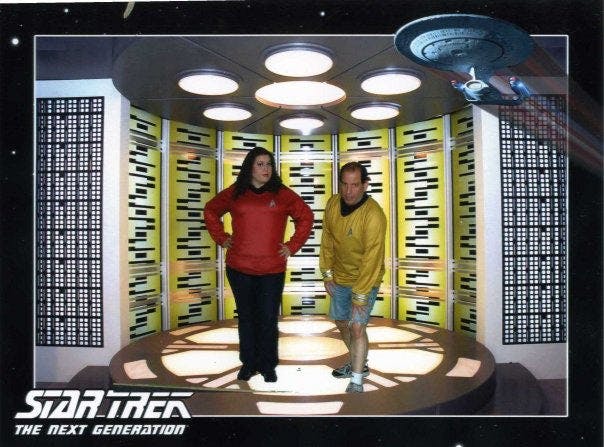
StarTrek.com
Joanna Schnurman: Star Trek was always a part of my household growing up. I remember being young and seeing my parents watch The Next Generation. Really, though, my Star Trek mania began around the age of 7 when I happened to catch a marathon of Star Trek: The Original Series on cable. I absolutely loved Spock, and the colorful, imaginative stories had me glued to the TV. Soon after, I found Voyager and that was a wrap. I was completely hooked for life. Seeing Captain Janeway solve problems using her brilliant scientific mind, often assisted by B’Elanna and Seven of Nine, was so inspiring to me as a child.
Believe it or not, my awareness of Star Trek conventions and events stemmed entirely from the VHS of Star Trek: First Contact. I watched that movie so many times that I still have the preview for Star Trek: The Experience in Las Vegas ingrained in my brain. I eventually looked it up to see if there were any events closer to me. I found a Star Trek convention in Parsippany, and the rest is history!
Your family endured a horrible tragedy, but Star Trek managed to help you cope with that tough situation. In what ways did Star Trek bring you comfort?
JS: When my mom was diagnosed with cancer in 2015, it was a major shock for me to say the least. Seeing my mom go through such a horrible illness was deeply distressing. I found a lot of comfort in curling up at the end of the day and watching Star Trek. I think I made it through repeat viewings of just about every season of every show in that time! There’s something unique to Star Trek in that it acknowledges battles, both personal and literal, but it nevertheless has a persistently optimistic view of the future.
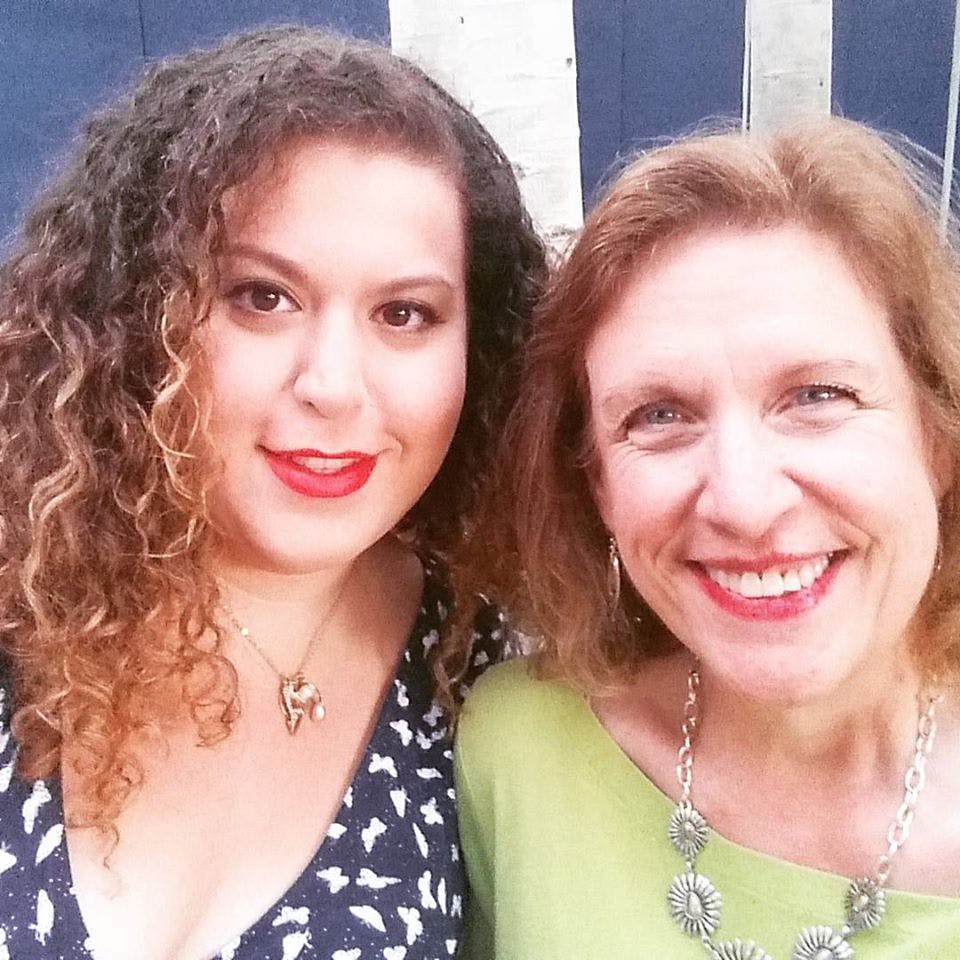
StarTrek.com
For instance, Captain Picard’s assimilation by the Borg. I think assimilation has a lot of parallels to cancer in that they both include loss of control over one’s body and being overrun by cells or nanoprobes that aren’t supposed to be there. Watching Captain Picard overcome that experience and continue to lead his crew while dealing with the post-traumatic aftermath is extremely compelling.
Star Trek is also just so engrossing, fun, and even silly at times. Those stories are just what I needed on the hardest days.
Star Trek: Voyager has been particularly special to you. Which aspects of that series appealed to you the most?
JS: Growing up, I looked up to Captain Janeway. Don’t get me wrong, I absolutely loved Kirk, Picard, Sisko, and Archer, but there’s something about being a young girl and seeing a woman so fearlessly and capably lead her crew.
My mom was the strongest person I’ve ever known. She faced unimaginable odds and remained the rock of our family. She held our family together in hard times much like Janeway held Voyager’s crew together. When my mom lost her battle with cancer in 2017, it was a bit like being flung into the Delta Quadrant. Life seemed completely foreign and scary, and I felt unsure how to navigate this new chapter of my life. Watching Voyager episodes during that time was a huge comfort.
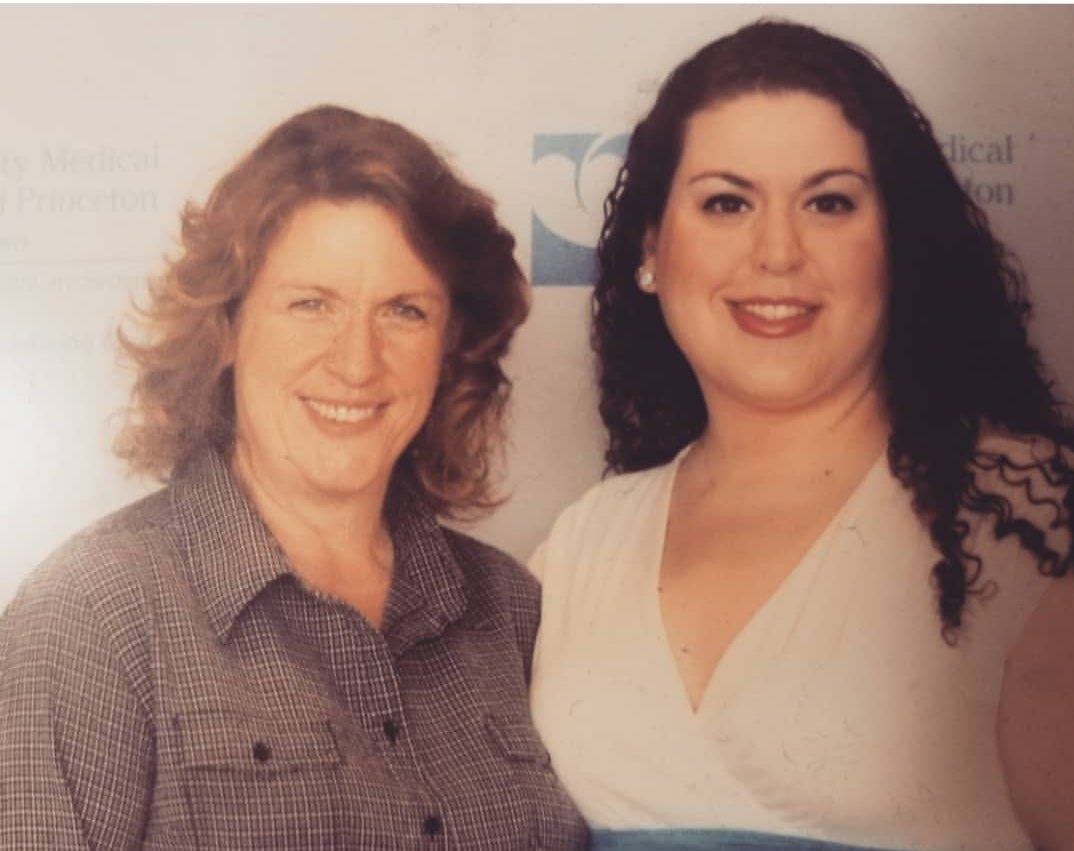
StarTrek.com
Did you see any parallels between the ordeal you faced and the situation that Janeway’s crew found themselves in?
JS: If you think about it, Janeway and the crew kind of go through their own stages of grief. They make the best of their situation and form a new family while still striving to meet their ultimate goal of finding their way home. I’m not exactly sure where I am in my journey, but certainly watching Janeway and the Voyager crew gave me a sense of purpose, especially in those early days after my mother’s death.
It is evident that you greatly admire Captain Janeway. What is the greatest lesson you learned from the character?
JS: This is a tough question to answer, because there’s so many great lessons to learn from Captain Janeway. She was so brilliant as a scientist and leader; she brought out the best in those around her and let them do the same for her. I think that can especially be seen in her relationships with Seven of Nine, Chakotay, and B’Elanna.
The greatest lesson though? I’d say it stemmed from her integrity. She was willing to do what was right even if it meant suffering a monumental personal loss - like, you know, getting stuck in the Delta Quadrant!
Are there any specific episodes or moments from Voyager that stand out as your favorites?
JS: The “Year of Hell” episodes are two of my favorites. They show the perseverance of Captain Janeway and her bravery and willingness to make the ultimate sacrifice. The “Unimatrix Zero” episodes are absolutely epic. Janeway versus The Borg Queen gives me chills every time. For pure escapism, I love “Bride of Chaotica!”, and a sentimental favorite is “Drive.”
The episode “Night” in particular stands out to me, because Janeway suffers symptoms of depression and grief that I can relate to, especially self-isolation. In the end, she’s really pulled through by her friends, and that’s exactly how I made it through my roughest moments… and how I still do!
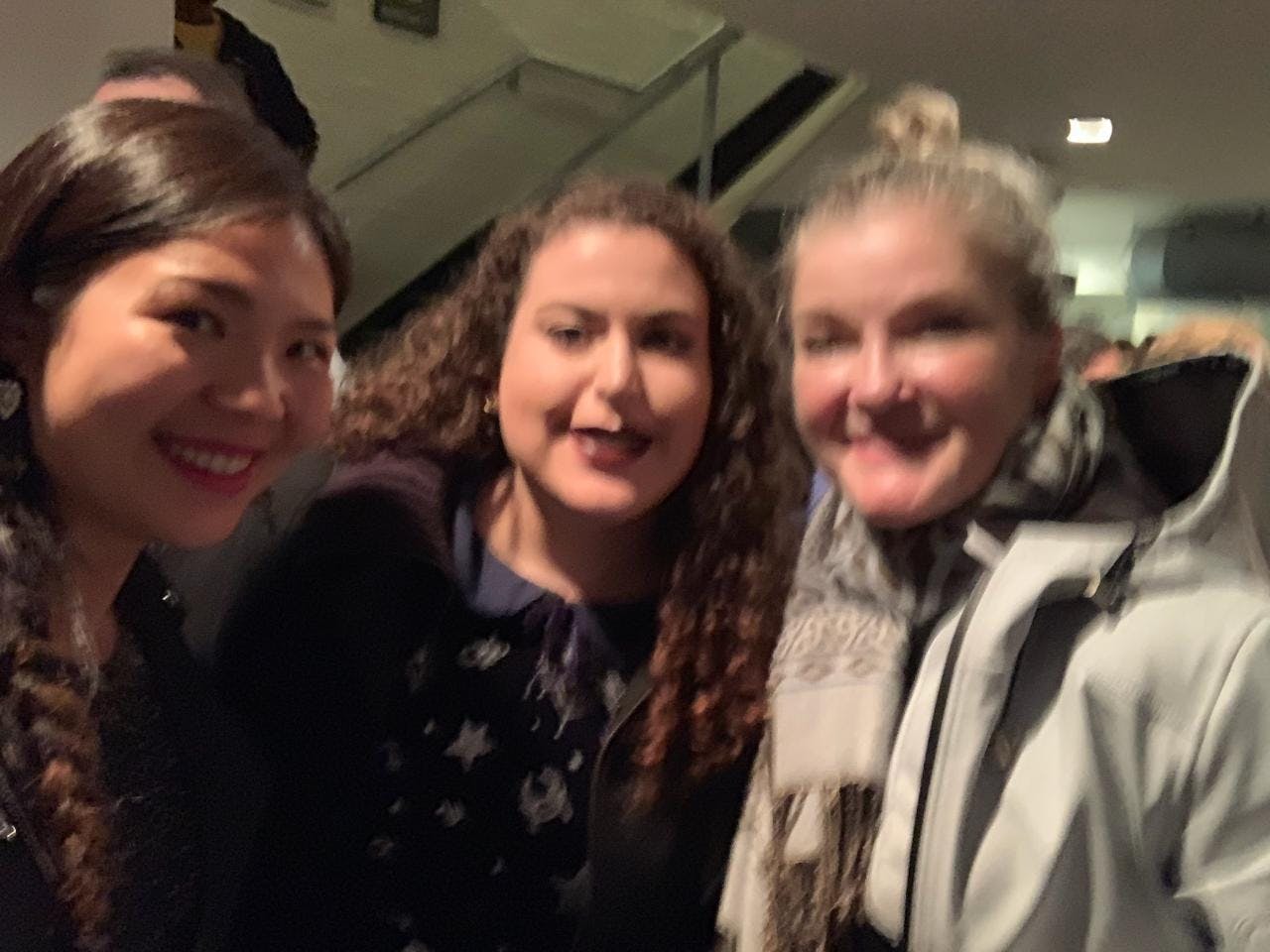
StarTrek.com
In an amazing turn of events, you actually had the opportunity to share your story with Kate Mulgrew. Could you describe that experience for us?
JS: I recently saw ‘The Half-Life of Marie Curie,’ which starred Kate Mulgrew and Francesca Faridany. I was extremely moved by the play’s subject matter and both women gave incredible powerhouse performances. I’ve always admired Kate Mulgrew for her conviction in playing so many varied characters in ways that feel true and real. She has a way of making you feel in touch with her character’s emotions and inner life, whether on stage or screen.
Both actresses were so generous with their time while meeting fans like me who’d stayed in the theater after the show. When she got to my friend and I, I intended simply to tell her how much her work has influenced my life. Instead, I completely burst into tears! I told her how much her work in Voyager helped me get through my mother’s illness and passing.
It was overwhelming to meet someone who I respect so much as an artist and role model, but she couldn’t have been kinder. She gave me a little hug and thanked me for telling her how much she and her work affected me. She was so extraordinarily gracious and kind. My admiration for her as a human being is immeasurable; I imagine that she was tired after her performance, but she still made time to talk with us a bit, take a photo, and sign my Playbill.
Speaking of events, you previously mentioned your affinity for conventions. A serious injury made attending them difficult, and you have even experienced discrimination as a result. Could you describe how your disability has altered your perspective?
JS: When I was in my early twenties, I sustained a pretty severe injury to my spine. For a period of time, I was unable to feel or move my leg. Thankfully, though I have permanent nerve damage and other significant issues from the injury, I regained a lot of motion in my leg. Though I’m not paralyzed, I still require the use of mobility aids in situations where there will be sustained standing, walking long distances, or both. I think it shocks some people to see me being wheeled around the convention floor, then later see me stand and stretch or put the wheelchair aside to walk for a bit.
I’ve gotten a lot of stares and some overt negative comments. It really is unfortunate to hear people murmuring about how I’m horrible and faking an injury to get ahead of them in an autograph line for example. There’s not a lot of awareness of invisible disabilities. When I used to need to wear a sizable brace on my leg, I never got any such comments. The disabled community is really varied; we don’t come in a one-size-fits-all mold!
My injury also illuminated so many accessibility issues I’d never noticed before. For instance, I attended a Star Trek convention about a year prior to my injury. I didn’t give a second thought to things like parking locations, entrance lines, or lines within the convention itself. I knew that there would be no problem with me accessing any space in the building! Nowadays, I need to plan my trips to conventions down to every minute detail because I know that I have certain physical limitations. It’s something a lot of people take for granted. Many convention spaces, layouts, and policies aren’t planned with disabled attendees or exhibitors in mind.
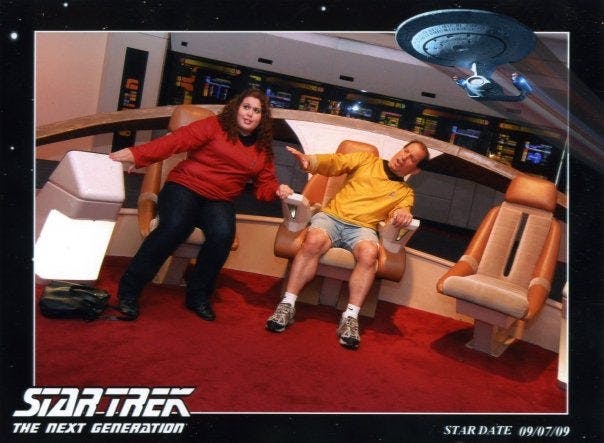
StarTrek.com
Star Trek: Discovery introduced a character who had been injured in the Klingon War. The wounded man, played by George Alevizos, has appeared in several episodes of the series. How did you react to seeing an officer with a mobility aid being portrayed on screen? Do you believe people with physical disabilities have been underrepresented in Star Trek?
JS: I think it’s great that Discovery cast George Alevizos to play a character who uses a mobility aid. He brings much needed disabled representation to the Star Trek universe and I would be really interested to see Discovery expand his role and give the character more backstory. In the future, I’d love to see producers hire more disabled actors for a greater breadth of roles. Disability representation is something I’m very passionate about and something that I include in my own writing.
People with disabilities have been underrepresented or misrepresented in media for long enough. We live wildly varied lives full of meaning, so it would be great to see this reflected on screen. I think back to how much it meant to me as a young girl to see women excelling in STEM fields on Voyager, and I wonder about how many lives in turn would be impacted by seeing, for example, a disabled captain.
Star Trek means a great deal to you, what has been the most rewarding aspect of being involved in the fandom?
JS: I love that Star Trek has become such a bonding experience for so many people across various platforms. I spent two years intensively rehabilitating my injury, and I had significant mobility limitations. I took up gaming in that time, and I ended up making a friend who I have to this day. We initially bonded over Star Trek! We even used to binge watch episodes of Voyager over Skype. There are so many awesome Star Trek fans out there; it’s great to be part of an inclusive fandom.
Into the #Starchive with Captain Janeway's OG Uniform
Jay Stobie (he/him) is a freelance writer who contributes articles to the official Star Trek website and Star Trek Magazine, as well as to Star Wars Insider and the official Star Wars website. Jay also serves as a part-time assistant and consultant advising many actors and creatives who work on his favorite sci-fi shows and films. He can be found on Twitter and Instagram at @StobiesGalaxy.

